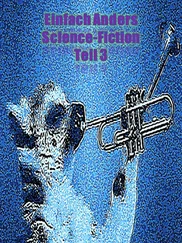We ate well that day. After alluding to the incident from the day before, the administrator criticized the Drill Instructor. He noted that we college graduates were “the best of the best, the future leaders of our country,” and that instruction must be “fair, civil, friendly” and emphasize “technique,” not merely rely on “simplistic violence.”
To close, the administrator wanted to take some photos with all of us. We lined up in a single rank, goose-stepping. The administrator held up a rope that the tips of all our feet had to touch, to show how orderly we could march.
* * *
We follow the flow of the water. The Drill Instructor is right. We see signs of droppings and paw prints.
It’s getting colder now. We’re lucky that we’re operating in the south. I can’t even imagine making camp up north, where it’s below freezing. The official news is relentlessly upbeat: the Rodent-Control Force units in several districts have already been honorably discharged and have been assigned good jobs with a few state-owned enterprises. But among the lucky names in the newsletter I don’t recognize anyone I know. No one else in the platoon does, either.
The Drill Instructor holds up his right fist. Stop. Then he spreads out his five fingers. We spread out and reconnoiter.
“Prepare for battle.”
Suddenly I’m struck by how ridiculous this is. If this kind of slaughter—like a cat playing with mice—can be called a “battle,” then someone like me who has no ambition, who lives more cowardly than a lapdog, can be a “hero.”
A gray-green shadow stumbles among the bushes. Neorats are genetically modified to walk upright, so they are slower than regular rats. We joke among ourselves that it’s a good thing they didn’t use Jerry—of Tom and Jerry —as the model.
But this Neorat is on all fours. The belly is swollen, which further limits its movement. Is the rat preg—ah, no. I see the dangling penis.
Now it’s turning into a farce. A bunch of men with steel weapons stalk a potbellied rat. In complete silence, we slowly inch across the field. Suddenly the rat leaps forward and rolls down a hill and disappears.
We swear in unison and rush after it.
At the bottom of the hill is a hole in the ground. In the hole are thirty, forty rats with swollen bellies. Most are dead. The one that just jumped in is still breathing heavily, chest heaving.
“A plague?” the Drill Instructor asks. No one answers. I think of Pea. If he were here, he would know.
Chi. A spear pierces the belly of the dying rat. It’s from Black Cannon. He grins as he pulls the spear back, slicing the belly open like a ripe watermelon.
Everyone gasps. Inside this male rat’s belly are more than a dozen rat fetuses: pink, curled up like a dish of shrimp cocktail around the intestines. A few men are having dry heaves. Black Cannon, still grinning, lifts his spear again.
“Stop,” the Drill Instructor says. Black Cannon backs off, laughing and twirling his spear.
The Neorats were engineered to limit their reproductive capacity: for every one female rat born, there would be nine male rats. The idea had been to control the population size to keep up their market value.
But now it looks like the measures are failing. The males before us died because their abdominal cavity could not support the fetuses. But how could they be pregnant in the first place? Clearly their genes are trying to bypass their engineered boundaries.
I remember another possible explanation, something Xiaoxia told me long ago.
* * *
Even though I’d had Li Xiaoxia’s phone number in my handset for four years, I never called her. Every time I took it out, I lost the courage to push the CALL button.
That day, I was packing for boot camp when I suddenly heard Xiaoxia’s faint voice as though coming from far away. I thought I was hallucinating until I saw that I had butt-dialed her. I grabbed the phone in a panic.
“Hey,” she said.
“Uh…”
“I hear you’re about to go kill some rats.”
“Yeah. I can’t find a job…”
“Why don’t I take you out to dinner? I feel bad that we’ve been classmates for four years and I hardly know you. It’ll be your farewell meal.”
Rumor had it that luxury cars were always parked below her dorm, waiting to pick her up. Rumor had it that she went through men like a girl trying on dresses.
That night, as we sat across from each other eating bowls of fried rice with beef, her face devoid of makeup, I finally understood. She really had a way of capturing a man’s soul.
We wandered around the campus. As we passed the stray cats, the classrooms, the empty benches, suddenly I missed the school, and it was because of memories I wished I had made with her.
“My dad raised rats, and now you’re going to kill rats,” she said. “In the Year of the Rat you’re going to fight rats. Now that’s funny.”
“Are you going to work with your father after graduation?” I asked.
She was dismissive of the suggestion. In her eyes, the business of raising rats was not all that different from working on a contract manufacturing assembly line or in a shirt factory. We still didn’t control the key technologies. The embryos all had to be imported. After the farm workers raised them, they went through a stringent quality-control process, and those that passed were exported, implanted with a set of programmed behaviors overseas, and then sold to the wealthy as luxury pets.
All that our country, the world’s factory, had to offer was a lot of cheap labor in the least technology-intensive phase of the operation.
“I heard the escaped rats had their genes messed with,” Li Xiaoxia said.
She went on to explain that just like how some contract manufacturers had tried to produce shanzhai iPhones by reverse engineering and messing with the software, so some rat farm owners were trying to reverse engineer and mess with the genes in their rats. Their goal was to raise the ratio of females and the survival rate of babies. Otherwise their profit margin was too low.
“They say that this time the rats didn’t escape,” she continued, “but were released by the farm owners. It was their way of putting pressure on certain branches of the government to gain more handouts for their industry.”
I didn’t know what to say. I felt so ignorant.
“But that’s just one set of rumors,” she said. “Others say that the mass escape was engineered by the Western Alliance as a way to put pressure on our country in the trade negotiations. The truth is ever elusive.”
I looked at the young woman before me: beautiful and smart. She was way out of my league.
“Send me a postcard,” she said. Her light laugh broke me out of my reverie.
“Eh?”
“To let me know you’re safe. Don’t underestimate the rats. I’ve seen them…”
She never finished her sentence.
* * *
From time to time, I feel many bright eyes are hidden in the dark, observing us, analyzing us, day or night. I think I’m going a little crazy.
By the bank of the river, we discover eighteen nests—low, cylindrical structures about two meters in diameter. Several physics majors squat around one, discussing the mechanical structure of interweaving sticks. On top is a thick layer of leaves, as though the makers wanted to take advantage of the waxy surfaces of the leaves to keep water out.
“I’ve seen primitive tribal villages like this on the Discovery Channel,” one of the men says. We all look at him oddly.
“It doesn’t make sense,” I say. I squat down, considering the trails of tiny paw prints that connect the nests to one another and the river, like an inscrutable picture. Do the rats have agriculture? Do they need settlements? Why did they abandon them?
Читать дальше












